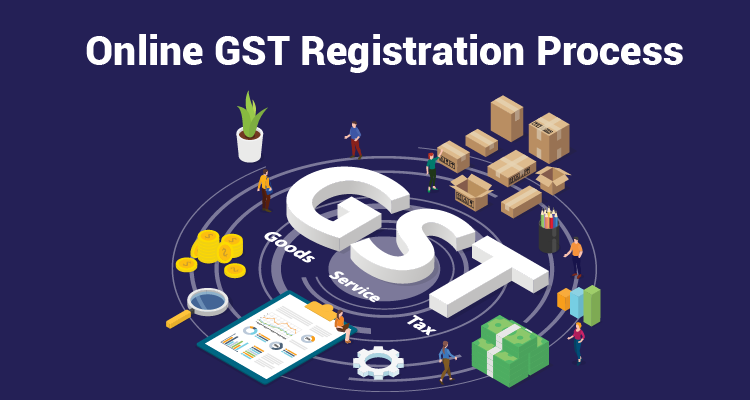Stay Clear Of Common Mistakes in Singapore GST Registration for Your Organization
Stay Clear Of Common Mistakes in Singapore GST Registration for Your Organization
Blog Article
The Ultimate Guide to Streamlining the GST Registration Process and Demands for Local Business Owners

Understanding GST Fundamentals
To realize the fundamentals of the Item and Solutions Tax Obligation (GST) system, local business proprietors should initially comprehend its underlying principles and effects. GST is a value-added tax levied on most items and services for domestic intake. It aims to enhance the tax procedure by changing multiple indirect taxes imposed by the state and central governments. Under the GST routine, organizations are required to sign up and gather tax in behalf of the government, guaranteeing transparency and compliance.
One of the key principles of GST is input tax credit rating, which permits companies to assert credit for tax obligations paid on their acquisitions. Comprehending these fundamental principles is critical for small organization proprietors to browse the complexities of the GST system and ensure conformity with the regulation.
Eligibility Requirements for Registration
Having established a fundamental understanding of GST concepts, local business owners should now meet specific eligibility standards to wage the enrollment process. In India, entities engaged in the supply of items or solutions with a yearly accumulation turn over going beyond Rs. 40 lakhs (Rs. 10 lakhs for unique group states) are required to sign up for GST. Furthermore, particular services such as those involved in inter-state supply of products, casual taxed persons, and those required to pay tax obligation under the reverse cost device should sign up for GST regardless of their turn over. Businesses that were signed up under the previous tax obligation routine (BARREL, solution tax, and so on) are additionally mandated to register under GST. Nonetheless, agricultural organizations that just provide create out of key manufacturing are excluded from GST registration. It is important for local business owner to meticulously assess their eligibility based on these requirements to ensure conformity with the regulation and stay clear of any charges for non-compliance.
Files Required for GST Enrollment

Simplified Registration Refine Actions
Following the collection and verification of the requisite documents, the registration process for Full Report GST can be navigated through a series of streamlined actions designed to facilitate reliable conformity for small company owners. The primary step involves going to the GST site and choosing the 'New Enrollment' option. Ultimately, the candidate should complete Part A of the GST REG-01 kind with information such as PAN, mobile number, and email address to obtain an OTP for confirmation. As soon as the OTP is obtained and entered, a Temporary Reference Number (TRN) is produced for further procedures. The following step requires filling in Component B of the form with necessary organization details, uploading supporting papers, and completing the confirmation procedure utilizing DSC or EVC. Upon effective confirmation, an Application Recommendation Number (ARN) is released, indicating the conclusion of the GST registration process. By following these simplified actions, local business proprietors can successfully register for GST and guarantee conformity with tax obligation guidelines.
Tips for Ensuring Compliance
To keep governing adherence and operational honesty, thorough oversight and aggressive procedures are crucial in making certain compliance with GST demands for little company proprietors. Tiny company owners click now need to stay upgraded with GST guidelines, filing target dates, and any type of adjustments in tax obligation rates to avoid charges and preserve an excellent standing with tax obligation authorities. Going to GST awareness workshops or training programs can improve understanding and compliance with GST regulations, ultimately profiting the service in the lengthy run.
Conclusion
Finally, local business proprietors need to comprehend the basics of GST, meet the eligibility criteria, gather required documents, and comply with the simplified registration process actions to make certain more information compliance. By streamlining the GST enrollment procedure and demands, small company owners can stay clear of charges and operate their services smoothly within the lawful framework - Singapore GST Registration. It is essential for local business owners to stay enlightened and compliant with GST policies to preserve an effective service operation
Small business proprietors seeking GST registration should ensure they gather and send the required files to finish the registration process successfully. The papers required for GST registration generally consist of proof of service registration or incorporation, FRYING PAN (Irreversible Account Number) card of the business entity, identity and address proof of the promoters/partners/directors, photographs, address proof of the area of business, financial institution account declarations or canceled cheques, and permission kinds. Participating in GST understanding workshops or training programs can enhance understanding and compliance with GST regulations, inevitably benefiting the business in the lengthy run.
By streamlining the GST registration procedure and demands, little company proprietors can avoid fines and run their services efficiently within the lawful structure. It is essential for little company owners to stay educated and compliant with GST guidelines to maintain a successful organization procedure.
Report this page